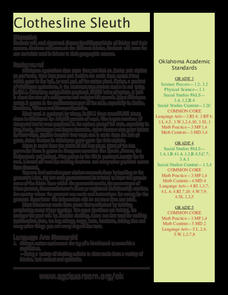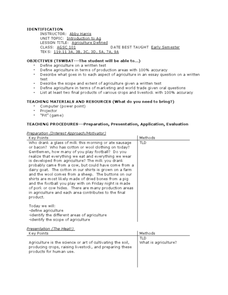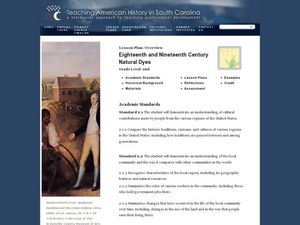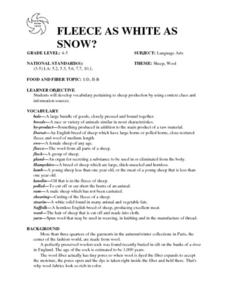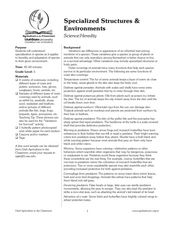Blake Education
Compound Word Snaps
Two worksheets with five exercises each? What's not to like? Kids practice using and identifying compound words and work on spelling for these activities.
Curated OER
Baa, Baa, Black Sheep Nursery Rhyme and Coloring Page
In this nursery rhyme coloring page, students see the nursery rhyme, Baa, Baa, Black Sheep. They color the cartoon-like black line picture of a woman knitting as she talks to a sheep. There are no directions given with this worksheet.
Curated OER
Rhythm-Music
First graders identify and keep a steady beat by playing instruments and playing the game stated in the lesson. Then they use what they know about rhythm and apply it to the use of instruments. Students also perform on instruments, alone...
Curated OER
Baaa Baaa Black Sheep have you any Wool?
Learners participate in a discussion covering the concept of phonemic awareness. They practice how letters make sounds that are combined to form written and spoken words. The teacher instructs the class by modeling the correct way to...
Curated OER
Clothesline Sleuth
What fabrics are our clothes made of? Where do those fabrics from? Lead your pupils to discover the answers to these questions and more. Class members have a chance to play with various fabrics, invesitgating the materials and labels...
Curated OER
Agriculture Defined
Open your Agriculture 101 course with a lesson on defining agriculture. Guide your class with thought-provoking questions and discussion. Give them time to play the card game, "Pit" in order to experience commodity exchange. This is a...
Curated OER
Writing Review 3
After reviewing basic capitalization and punctuation rules, give your young grammarians this four-question quiz to assess their understanding of the most basic English language conventions.
Curated OER
A Common Thread: The Significance of Wool In Midieval England
Sixth graders fill in a KWL chart and participate in a simulation of role playing about the Renaissance. In this Renaissance lesson plan, 6th graders learn how agriculture affected the culture of Midieval England.
Curated OER
Battering Through the Seasons
Students define bartering and barter to investigate supply and demand. In this bartering lesson, students read A New Coat for Anna and recall how they exchanged merchandise in the story. Students complete a sequential graphic organizer....
Curated OER
Clothesline Sleuth
Third graders discover the origin of an item of clothing. For this clothing lesson, 3rd graders navigate the net to locate information related to various fabrics. Students answer questions and define vocabulary about fabrics. Students...
Curated OER
All About Farm Animals
In this animal science interactive worksheet, students read a paragraph about farm animals and select the correct name of the animal from the drop-down menu to match the illustration. There are 15 matching questions and a word search to...
Curated OER
Piece by Piece
Students study quilts. In this history/geometry quilt lesson, students discover the history behind quilt making and get a chance to make quilt blocks of their own. They work independently to make a quilt block out of construction paper...
Curated OER
Planet Zorcon
Students relate the geography and economics of Utah. In this geography lesson, students log their use of resources both natural and synthetic. Students participate in an experiment to understand how the Earth will be in the future if our...
Curated OER
Science Egg Experiment
Students examine and hypothesize about hard cooked and raw eggs before experimenting to see which one cracks more easily when dropped in a bucket. They open both eggs and compare them using a Venn diagram. They design a presentation...
Curated OER
Eighteenth and Nineteenth Century Natural Dyes
Second graders explore the work of Americans when it came to coloring materials. For this interdisciplinary lesson, 2nd graders follow the provided steps to make natural goldenrod dye from scratch.
Curated OER
Topsy Turvy Kids
Sixth graders study the artwork of Jaune Quick-to-See Smith before creating their own. In this painting lesson, 6th graders examine two pieces of work by Jaune Quick-to-See from the online collection of the Missoula Art Museum and read a...
Yale University
Airplane Mathematics
The history of aerodynamics is rich with experimentation and international collaboration. Author Joyce Bryant relays this dynamic past and provides math word problems using the formula of lift, the force that makes airplanes fly. She...
Read Theory
Analogies 2 (Level 6)
Activate analogy skills with a straightforward exercise. Learners complete 10 analogies, using the bridge sentences provided as support while they determine word relationships.
Curated OER
Fleece As White As Snow
Class members develop and expand knowledge of words and word meanings to increase vocabulary. They learn these terms based on having a wool day. Pupils wear or bring something in made of wool. They gain knowledge of what a wool symbol...
Curated OER
Clothesline Sleuth
Students explore the make up of fabrics. In this agriculture lesson, students examine the cotton and wool crops of the United States and discover how fabrics are created.
Curated OER
CLOTHESLINE SLEUTH
Students will trace origins of various forms of clothing to their agricultural sources.String a cotton cord across the top of a blackboard to resemble a clothesline. 2. Bring a variety of clothing articles to class made from a variety of...
Curated OER
Piece by Piece
What do your pupils know about quilting? Read and discuss the information included here before sending class members off to create their own quilt blocks using construction paper. When they have completed their blocks, provide some time...
Curated OER
Farm Vocabulary Cross Out Worksheet
In this farm vocabulary worksheet, students read ten clues pertaining to the farm. Students analyze the word answer and cross out all the letters that do not belong. Students write the correct word on the line.
Curated OER
Specialized Structures and Environment
Fifth graders read about how different animals protect themselves, and how characteristics give animals an advantage in their environment. Students then discuss a variety of "outer" wear for humans, and what they might choose to wear in...






